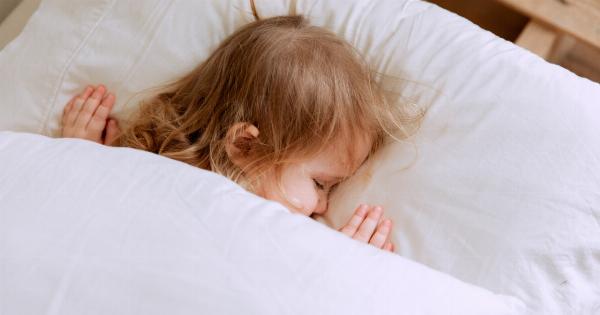Sleep is one of the most essential activities in our daily routine. It is crucial for the overall physical and mental health of an individual. As a parent, it is important to ensure that your child receives adequate sleep.
The recommended sleep duration for children varies based on age group, however, inadequate sleep can have harmful effects on a child’s mental and physical well-being. In this article, we will explore why getting your child to sleep is important and how it can improve their mental health.
Importance of Sleep for Children
There are several reasons as to why sleep is important for children. Firstly, sleep impacts a child’s physical growth, brain development, and overall health.
Studies have shown that when children receive adequate sleep, they tend to be more alert, focused, and productive when performing tasks such as schoolwork and athletics. Additionally, sleep is crucial for the body to repair damaged tissues, grow bone, and build muscle mass.
How Sleep Affects Mental Health in Children
Inadequate sleep can have harmful effects on a child’s mental health. When children do not receive adequate sleep, it can cause disruptions in their mood and behavior.
It can also lead to the development of several mental health disorders such as anxiety and depression. Studies have shown that sleep deprivation impacts the levels of neurotransmitters, which can have a direct impact on mental health. In addition, sleep deprivation can lead to irritability, impulsive behavior, and poor decision making.
Tips for Getting Your Child to Sleep
Here are a few tips for effectively getting your child to sleep:.
- Establish a night-time routine: Work with your child to establish a night-time routine. This can include activities such as reading a book or taking a warm bath.
- Set a consistent sleep schedule: Setting a consistent sleep schedule can help train your child’s body to fall asleep and wake up at the same time every day.
- Limited screen time: Limiting screen time before bedtime can help promote relaxation and better sleep quality.
- Maintain a comfortable sleep environment: Ensure that your child’s sleep environment is comfortable, dark, and quiet.
- Avoid late night snacks or caffeine: Snacks or beverages with caffeine can cause difficulty in falling asleep or maintaining sleep throughout the night.
The Benefits of Getting Your Child to Sleep
Getting your child to sleep can have several benefits on their mental health. It can improve their mood and behavior, promote better decision making skills, and reduce the risk of mental health disorders.
In addition, it can help improve their concentration and productivity levels, which can have positive effects on their academic and athletic performance.
Conclusion
In conclusion, sleep is an essential activity for children, and it is important to ensure that your child receives sufficient sleep.
Adequate sleep can have several positive effects on your child’s mental and physical health, and can reduce the risk of several mental health disorders. By following the tips mentioned above, you can effectively get your child to sleep and promote a healthy lifestyle.





























